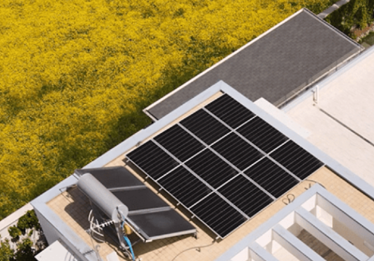South Africa, with its abundant sunlight,
is ideally positioned to harness solar energy for residential power needs. As
the global shift towards sustainable energy gains momentum, many South African
households are exploring the installation of solar systems. However, how much
does a solar system cost for households in South Africa? In this article, we
delve into the factors influencing the cost of solar systems for households in
South Africa.

Understanding
the Cost Factors
The cost of a solar system for a household
in South Africa depends on various factors, and a comprehensive understanding
of these elements is essential for anyone considering the switch to solar
power.
1. System Size
and Energy Needs
The size of the solar system is a primary
determinant of its cost. Larger systems with higher capacity can generate more
electricity, but they come with a higher upfront cost. To determine the
appropriate system size, homeowners should assess their energy needs,
considering factors such as the number of occupants, daily electricity
consumption, and available roof space for solar panels.
2. Quality of
Solar Panels
The type and quality of solar panels chosen
significantly impact the overall cost. Monocrystalline panels, known for their
efficiency, tend to be more expensive than polycrystalline panels. However, the
investment in high-quality panels often pays off in terms of better performance
and durability over the long term.
3. Inverter
Type and Efficiency
The inverter is a crucial component of a
solar system, converting the DC electricity generated by the panels into AC
electricity for household use. The cost of inverters varies based on their type
(string inverters, microinverters) and efficiency. Investing in a high-quality
inverter ensures optimal energy conversion and overall system performance.
4. Battery
Storage
While not mandatory, adding a battery
storage system to the solar setup allows homeowners to store excess energy for
use during periods of low sunlight or power outages. Batteries contribute to
the overall cost of the system but enhance energy resilience and independence.
So it’s always advised to add battery storage for uninterrupted use of solar
energy.
5. Installation
Costs
Professional installation is essential for
the effective and safe deployment of a solar system. Installation costs include
labor, mounting hardware, and electrical components. Engaging certified
installers is important to ensure compliance with local regulations and
standards.
6. Government
Incentives and Rebates
In South Africa, government incentives and
rebates can significantly reduce the cost of installing a solar system. The
Renewable Energy Independent Power Producer Procurement Program (REIPPPP) and
other initiatives aim to encourage the adoption of renewable energy. Homeowners
can explore all available incentives to maximize their savings.

The Cost
Breakdown
While costs can vary, a rough estimate for
a basic solar system in South Africa can range from R50,000 to R100,000 or
more, depending on the factors mentioned above. This estimate includes the
solar panels, inverter, installation, and associated components. It's crucial
to note that the initial investment is offset by long-term savings on
electricity bills, making solar systems a financially sound decision over time.
Conclusion
Investing in a solar system for household
electricity in South Africa is a forward-thinking decision with both
environmental and financial benefits. By understanding the various cost
factors, homeowners can make informed decisions that align with their energy
needs and budget. As technology advances and the demand for renewable energy
grows, the cost of a solar system for household in south africa is likely to become even more
accessible, contributing to a brighter, sustainable future for households
across the Rainbow Nation.
